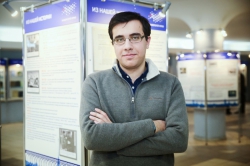According to SuperJob, such specialists as mobile app developers, web-programmers, cyber security professionals and Big Data analysts will be in most demand. Yet, companies will be looking for not just any of them: interdisciplinary knowledge and skills will become the overwhelming advantage in job hunting. The companies will also look for those who can develop different kinds of software for increasing the administrative process efficiency.
"Companies will become more selective about choosing employees. To enhance these processes, they will fund their own development or outsource IT decisions for searching, assessing and communicating with potential employees. This will allow to not only decrease the time spent on professional adaptation, but to decrease the costs of training, as well", underline the experts.
According to Vladimir Parfenov, Dean of the Faculty of Information Technologies and Programming, the boom conditions in the job market allow talented graduates to look for more interesting jobs. Many prefer creative tasks and prospects to higher wages. For instance, the banking sector is not really popular among the graduates, even though it offers good working conditions. Vladimir Parfenov is sure that it's due to business etiquette that is unpopular with young specialists. Still, there are to be changes in this sector, as well: experts tip a great future to FinTech — a new trend which has to do with artificial intelligence. Bankers offer to launch new development centers with interesting tasks in this field; still, all of this is yet to be done.
 Vladimir Parfenov.
Vladimir Parfenov.
"Students start working during their fourth year, and write their Bachelor's papers at the same time. The Master's students are no different: they write their theses based on the practical skills they get at their work. Most companies offer good conditions to young specialists — their workhours per week may be decreased to some 20−30 hours. Large Russian IT companies offer Master's graduates wages of about 100,000 rubles; what comes next depends on the specialist. When talking about working abroad, there are two companies that are good for our graduates — Google and Facebook. Several of our students go to work there each year, but most return back to Russia so as to create their own startups", underlines Vladimir Parfenov.
The Dean also relieved the fears of those who believe that one won't survive without programming skills in the future. Basic knowledge in programming will certainly be of no use: being successful in new fields implies university-level training and a proper outlook. Yet, one surely has to understand what programming is and how it affects everyone's lives.
Apart from IT-specialists, machine engineers, specialists in forest, aircraft and food industry, as well as reservoir engineers will remain to be in demand. Banks will continue to look for anti-crisis management specialists.

Another trend that will affect the job market is the automation processes, which will result in decrease in job positions and disappearance of particular professions. About 70% of positions in data processing, especially in IT, will be no longer; also, call-center operators and data input specialists will gradually disappear.
Due to automation, low-level accountants and documentation clerks will also become a thing of the past, as these specialists mostly deal with paperwork.
Even the demand for qualified industrial workers and miners will decrease in the upcoming year, as well as English teachers, as knowledge of this language will stop being an advantage when job hunting.





